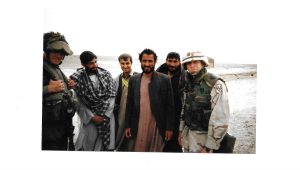
After forty years of serving as a judge in the white man’s courts I was recently honored to be asked to serve as a Special Judge by appointment of the Court of Appeals of the Stockbridge-Munsee Community of the Mohican Nation. The appointment of an outside judge was necessary because the case involves questions of tribal membership and the regularly sitting Native American judges for the Tribe had conflicts of interest due to the judges’ personal connections to the issues.
As I had no experience with Native American law, I had to first familiarize myself with the particular Tribe’s particular Constitution, procedural rules and statutes that applied to my assigned case. What I found was the bedrock issues for the Indian judicial system are remarkedly similar to the legal system I learned in law school and sat as a judge in. When I looked closely at tribal law, I came to the same conclusion attorney Abraham Lincoln did. Lincoln said the primary purpose of all courts and lawyers should be to:
“Discourage litigation. Persuade your neighbors to compromise whenever you can. As a peacemaker, the lawyer (judge) has a superior opportunity of being a good person.”
If one reads some newspaper editors or listens to cable news anchors, he or she might conclude compromise is anathema to the American body politic’s well-being. Conflict and strife with unyielding single mindedness are the watchwords for national media and federal, and many state, office holders. This way of addressing our personal and national problems seems rather discordant when a majority of Americans apparently believe their preferred law giver said:
“Blessed are the peacemakers, for they will be called the children of God.”
Matthew 5:9
It is ironic that those, many of whom champion Jesus the ultimate practitioner of compromise, so often call for obstinance and conflict. I guess the concept of situational ethics passes them by.
What I discovered in researching tribal law was what legal scholars have known since the days of Socrates: all courts are here to resolve controversies. That is their only charter, not to provide fodder for the gossip mill or entertainment for the afternoon or late-night talk show crowd. Judges, whether in the white man’s legal system or the Indian’s, have one main mission, that is to help people help themselves, if they can, to make peace.
I grew up on an Indian reservation but my experience with the kids I played ball with, fought with and dated was they were just like me. Therefore, I was not surprised Native American courts had the same mission as the one I presided over in the white man’s world. On the other hand, it is comforting to think should I for some reason get caught up in a tribal legal system it will be about the same as the social system I have always known. And I am glad America is finally getting around to recognizing what should have always been the case.
The tribal law I researched reminded me of laws enacted from the times of ancient Rome, ancient Greece and English and French legal philosophers, such as John Locke and Voltaire and American Founding Fathers, such as Thomas Jefferson and James Madison.
Another great philosophical legal leader was Chief Joseph of the Nez Perce (1840-1904). Chief Joseph engaged in peaceful resistance until he was forced to surrender which he did based on certain representations from the white man’s government. Those representations were not honored. However, Chief Joseph upheld his end of the peace agreement and he was greatly admired as a peacemaker.
Chief Joseph’s legal philosophy is remarkedly similar to that of our earlier mentioned judge: Jesus said, “do unto others as you would have them do unto you.” Chief Joseph said:
“If the white man wants to live in peace with the Indian, he can live in peace. Treat all men alike. Give them the same law.”
As a tribal judge, even if only for one case, I feel quite at home with this court mission statement from Chief Joseph.



